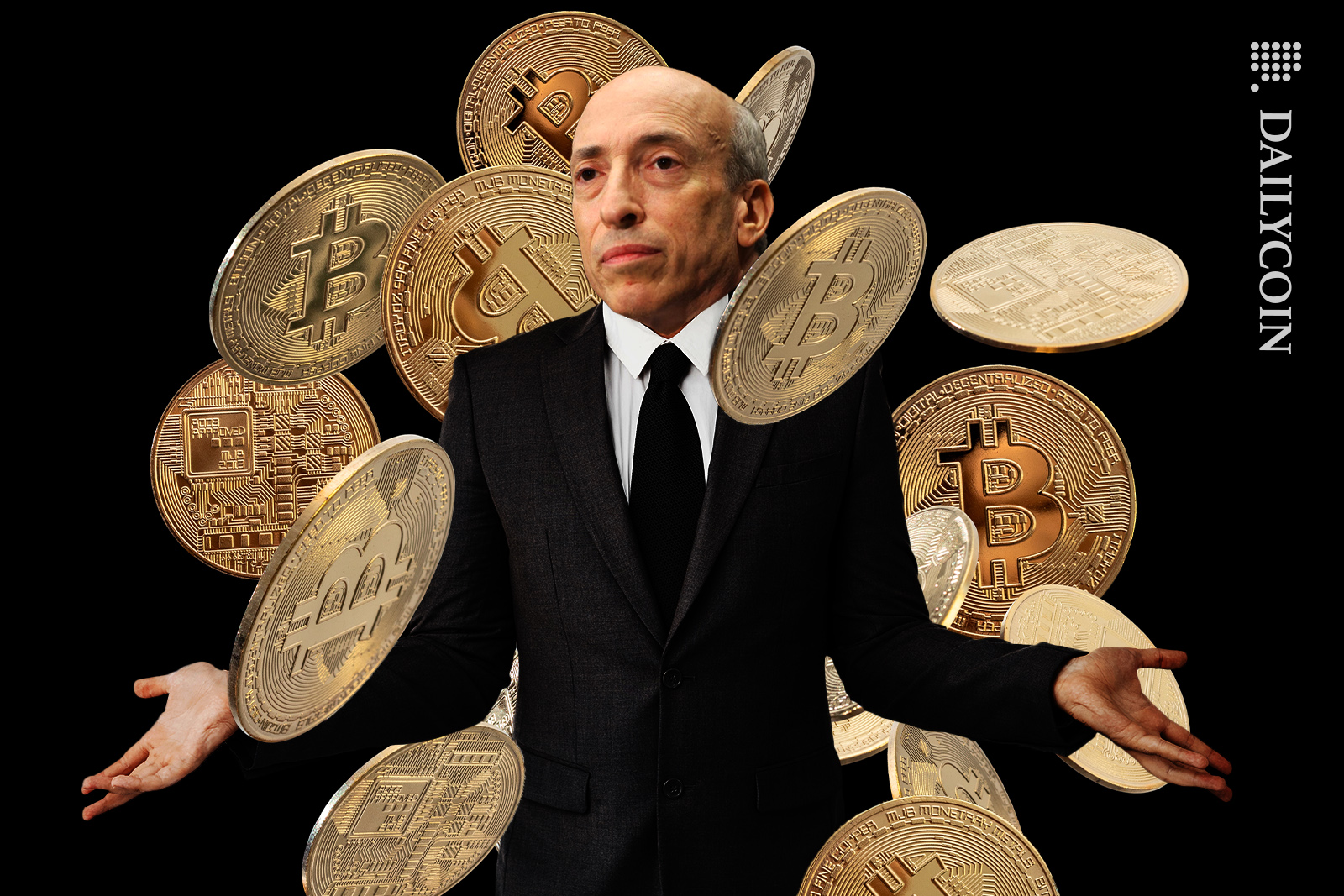
- Anticipation for Bitcoin ETF approval has collided with the SEC’s potential classification of Bitcoin.
- Discussions around Bitcoin’s status have intensified due to BlackRock’s involvement.
- The evolving regulatory landscape has posed challenges for the crypto industry.
Amidst growing anticipation for a spot Bitcoin ETF approval, concerns are mounting over the U.S. Securities and Exchange Commission’s (SEC) potential classification of Bitcoin as a security. This debate has sparked heated discussions within the crypto community, with Bitcoin maximalists asserting the digital asset’s distinct nature from securities.
BlackRock Helps Fuel Debate on Bitcoin’s Status
The ongoing debate stems from a post suggesting the SEC’s potential classification of Bitcoin as a security. This observation was echoed in BlackRock/iShares Bitcoin ETF filings. While Bitcoin and Ethereum have so far escaped the SEC’s securities label, the regulator’s approach has drawn criticism from other crypto proponents.
Cypherpunk CEO Bruce Fenton argues that Bitcoin’s decentralized, open-source nature exempts it from securities categorization, citing the Bernstein vs. Department of Justice ruling to support code as protected free speech.
In contrast, Ripple’s CTO David Schwartz likens code to physical books, suggesting its usage determines its classification, suggesting the government might limit speech forms it deems harmful, potentially including Bitcoin’s classification.
Sponsored
Cardano’s founder, Charles Hoskinson, has expressed frustration over the SEC’s application of the investment contract theory, accusing the regulator of favoritism towards Bitcoin and Ethereum.
Bitcoin’s Security Status: A Game of Regulatory Roulette
Bitcoin and Ethereum, the two largest cryptocurrencies by market cap, have escaped the SEC’s securities classification so far. However, other cryptocurrencies have not been as fortunate. Ripple Labs, for instance, is currently embroiled in a legal battle with the SEC over whether its XRP token constitutes a security.
Sponsored
The ongoing debate over Bitcoin’s security status highlights the challenges the cryptocurrency industry faces in navigating the regulatory landscape. As the SEC continues to scrutinize crypto assets, industry participants must monitor developments closely and adapt their strategies accordingly.
On the Flipside
- Bitcoin’s initial distribution and early mining activities could still raise questions about its classification under securities laws.
- Despite Charles Hoskinson’s frustration with the SEC’s perceived bias towards Bitcoin and Ethereum, these cryptocurrencies’ long-standing existence and decentralization might inherently set them apart.
Why This Matters
How the SEC perceives and categorizes Bitcoin could potentially set a precedent for treating other cryptocurrencies, impacting their legal standing and operational freedom within the market.
To learn more about Bitcoin’s price predictions and its flirtation with $44K, read here:
Bitcoin Flirts With $44K as Bulls Bet on $48K Year-End Price
For further insights into BlackRock’s second Bitcoin ETF amendment filed with the SEC, explore here:
BlackRock Files Second Bitcoin ETF Amendment to SEC
